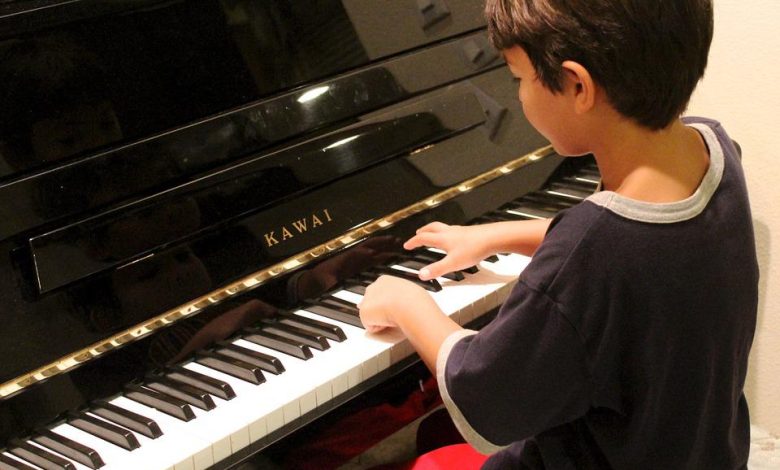11 Benefits of Playing Piano

Whether you experienced childhood in a melodic family, urged to rehearse vast hours before presentations as I did, or whether you guarantee the most diminutive musicality of anybody you know, The benefits of playing an instrument, especially the piano, are numerous. Moreover, concentrates on show it is genuinely never beyond any good time to begin playing piano – the psychological and actual advantages apply to all ages.
An adoration for music underlies all that we do. We completely perceive the multi-layered advantages of learning an instrument, particularly piano. To assist with presenting the defense for figuring out how to playing piano, we’ve framed large numbers of the mental advantages which are upheld by a few weighty examinations and exploration.
1. Forestalls Brain Processing, Hearing And Memory Loss
The capacity to handle hear-able signals as a rule dials back as we age. Be that as it may, members of a new report who kept on playing music all through their lives had helped invert the downfall of mind handling, memory and inward ear hearing misfortune.
2. Further Developed Counting And Math Skills
A review directed by Martin F. Gardiner and his partners at the Center for the Study of Human Development at Brown University found that particular melodic preparation in unambiguous additions toward more noteworthy trouble helped second graders’ numerical abilities essentially over their friends.
3. Practicing New Language Skills
A concentrate in the mid 1990s found the “Mozart impact” in youngsters, which showed early language improvement and spatial-worldly knowledge could be supported by console illustrations for preschoolers.2 Additionally, a concentrate by Dr. Charles Limb showed that musicians who solo think carefully etymologically as though they were answering conversationally and syntactically.
4. Further Develops Reading Comprehension
A recent report summed up in the Educational Psychology diary showed that the capacity to separate between pitch, which is a key capacity you realize while piano lessons for adults, was connected to great understanding execution. Furthermore, figuring out how to remember music before execution practices perusing appreciation abilities and the part of your cerebrum answerable for review.
5. Supports Creativity
Dr. Ana Pinho directed a new report on jazz musicians. Observing their mind action while playing, she observed that the piece of their cerebrum liable for default or cliché reactions was really switched off. All things considered, when jazz musicians are playing, their minds ad lib capacity is terminating to make remarkable, unique sound and style.
6. Practice With Time Management And Organization
Similarly as with any obligation or leisure activity, figuring out how to add it to your day to day daily schedule and make time to do it demands great using time effectively. Playing piano and different instruments that request a standard practice plan are especially successful in moving one’s capacity to oversee and coordinate their time. For kids, figuring out how to play piano, shuffling illustrations, practice and tomfoolery play, is an incredible method for showing these long lasting abilities.
7. Requires Concentration, Discipline And Patience
Different region of the cerebrum light up while playing music. Researchers concentrating on the cerebrums of performers as they play music. Have observed that the discipline of playing music. What could be compared to a full-body mind exercise. Reinforcing different region of the mind, including our capacity to think. Center and apply information, playing music permits us. To practice our cerebrum comparatively in different regions. Along these lines. It ought not be astounding that beginning to play piano will set off expanded persistence. Focus and discipline in different parts of your life.
8. Reinforces Hand Muscles And Hand-Eye Coordination
Nothing unexpected figuring out how to play piano requires dexterity. Yet a new report close by engine control in artists proposes that piano. Entertainers have really changed the cortical planning to speed up. For kids and grown-ups with diminished coordinated movements, figuring out how to play the piano can provoke these cerebrum associations with engine development and even reinforce coordination.
9. Further Develops Rhythm And Coordination
Learning cadence is fundamental for dominating piano, yet it likewise has been displayed to decidedly affect perusing abilities in youngsters. As per the scholastic diary, Psychology of Music, “Kids presented to a long term program of music. Educational cost including preparing in progressively complex cadenced, apparent. Commonsense abilities show prevalent mental execution in perusing abilities contrasted and their non-artistically prepared peers.”
10. Supports Self-Esteem
In a 2014 investigation of 4th grade understudies in government funded school in Canada. Youngsters who got individual piano illustrations for quite a long time. Tried higher on confidence measures and school music accomplishment tests. Figuring out how to play piano and encountering the energy of dominance subsequent. To learning a piece of music is an extraordinarily strong method for helping one’s certainty.
11. Extends Cultural Knowledge
In a 2016 investigation of Amazonian ladies and men. Melodic inclination was viewed as stringently social and not designed into our minds. Counter to past presumptions about our cerebrums’ inclinations of conflicting versus consonant harmonies. The review’s discoveries support figuring out how to play piano as one method for growing. Our social information on various sounds, styles and sorts of music. Particularly for youngsters, this openness is basic to empowering early receptiveness and social variety.





